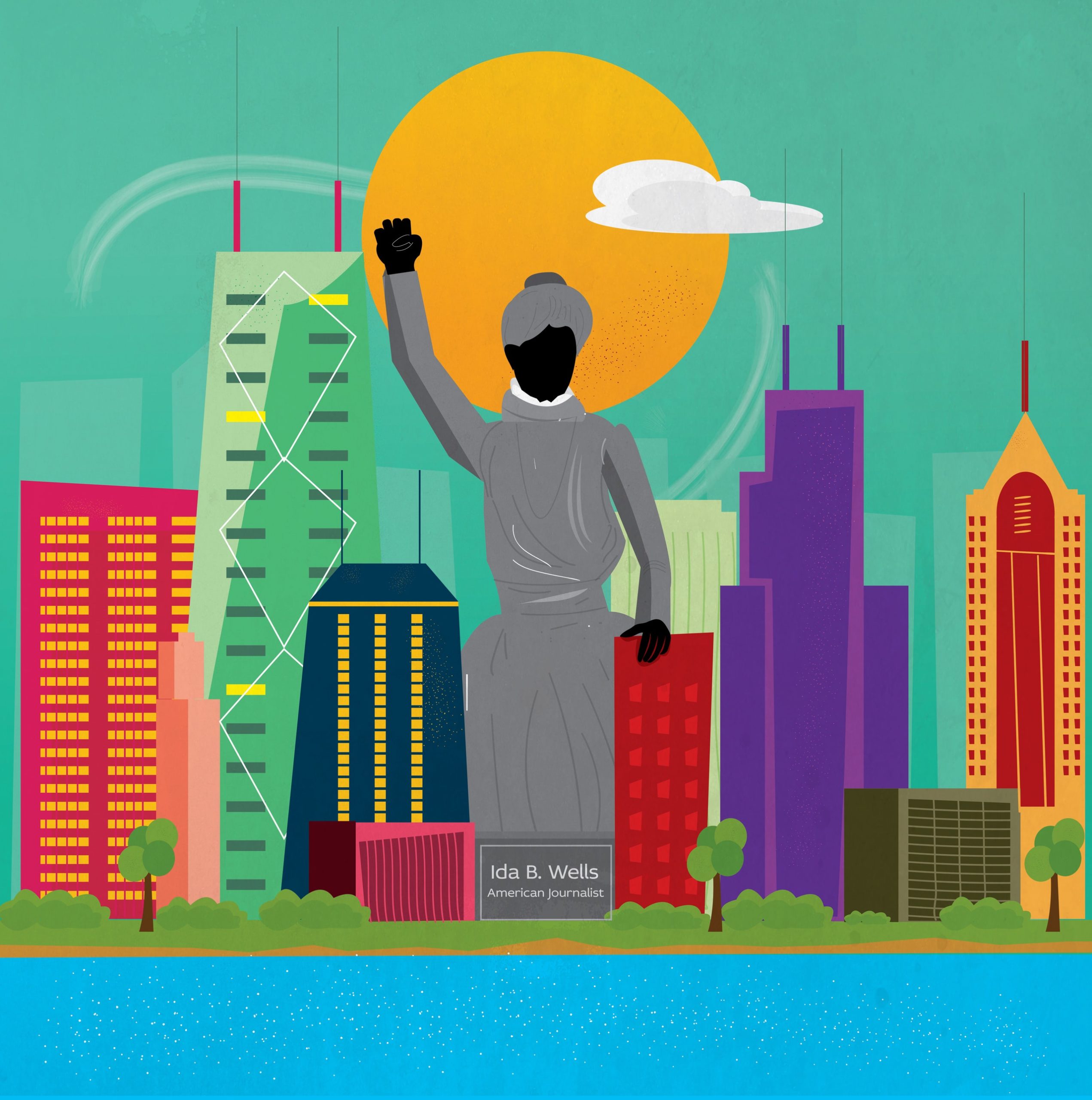I learned at an early age that my great-grandmother was Ida B. Wells, a woman who dedicated her life to fighting every form of injustice, whether based on race, gender, or class. In addition to being one of the most influential journalists in history, she was involved in the suffrage movement, was one of the founders of the NAACP, founded the first kindergarten for black children in Chicago, and created a rooming house for Southern migrants.
Let’s give this some context: My great-grandmother was born a slave in 1862 in Mississippi and came of age during Reconstruction. In 1892, the lynching of three of her friends in Memphis propelled her to investigate, chronicle, report, and speak in graphic detail about the realities of lynching. She wrote numerous articles and pamphlets to document this domestic terrorism, bringing to light the extraordinary levels of violence and injustice perpetrated against black women and men. Through her work, my great-grandmother countered the false narratives that white journalists and newspapers used to justify brutality toward black people. She fought to develop a culture where women of African descent were fully empowered and where the kind of treatment based on gender, race, and other disparities could be erased.
Because of her outspokenness, people threatened her life. She lost everything she owned when a white mob destroyed her Memphis printing press, and she was effectively exiled from the South. Yet, despite that enormous loss, she continued to fight for justice. She traveled to the United Kingdom to inform the world about how the United States treated its own citizens. In the midst of her crusade, she met and married an attorney named Ferdinand L. Barnett. They ultimately settled in Chicago, and Ida hyphenated her name to Wells-Barnett.
She was a pioneer in many ways — from her journalism to her feminism — and her influence on both is evident today. Yet too few Americans know of her. I’ve worked for years to change this. In the late 1980s, I worked on the PBS documentary film *Ida B. Wells: A Passion for Justice,* but I realize that not everyone watches documentary films. I’ve edited two books, *Ida in Her Own Words* and *Ida From Abroad,* that include her original writings, but I’m aware that not everyone enjoys reading. I have spoken about the life and legacy of my great-grandmother at panels, conferences, symposiums, churches, and other events, but I know that I am reaching only a small segment of the population. I am involved with the Ida B. Wells-Barnett Museum in Holly Springs, Mississippi, but I understand that museums are not for everyone.
Public monuments are a way to help educate and inspire the broad public. They make history accessible in ways that are visual and tangible, and they allow people to interact with historical information presented in a physical form.
But African American women who have contributed so much to this country are grossly underrepresented in monument form. (2), only three of (3) in this country honor women, and Harriet Tubman is the sole African American woman. The omission of our contributions hurts everyone. Exposure to almost exclusively white men stifles our country.
The trajectory of my great-grandmother Ida B. Wells’s life was formed by her tireless commitment to uncovering the truth and fighting for justice and equality. I find it incomprehensible that there is no monument to her work. While the debate about Confederate monuments rages on, it is time to focus on creating monuments to honor African American women so we can be recognized and celebrated.
Over the past ten years, I have worked with the (4) to have my great-grandmother honored with a monument in Chicago, where she lived the last 35 years of her life. The outpouring of support for the monument on my great-grandmother’s July 16 birthday was mind-boggling. I was hoping people would want to help but never imagined that more than 1,100 people would respond and donate over $40,000 in one day. It was a true testament to how much she means to people all over this country. She was a significant force and should be celebrated and known to all. She was a heroine who spent her life fighting for the potential of what our country can be.
*Michelle Duster is an author, speaker, and professor at Columbia College Chicago. She has written, published, and contributed to nine books, and leads the Ida B. Wells Memorial Foundation. Learn more at (1).*
1) (http://mldwrites.com/)
2) (https://www.nps.gov/aboutus/upload/Site-Designations-01-13-17.pdf)
3) (https://www.nps.gov/archeology/sites/antiquities/MonumentsList.htm)
4) (http://www.idabwellsmonument.org/)



